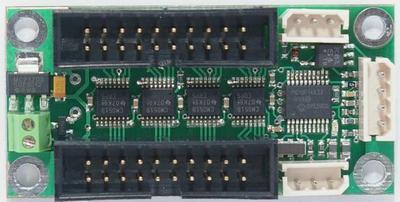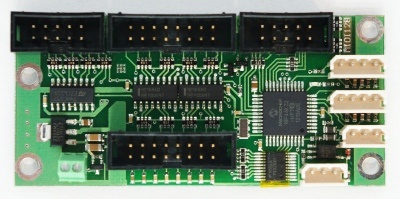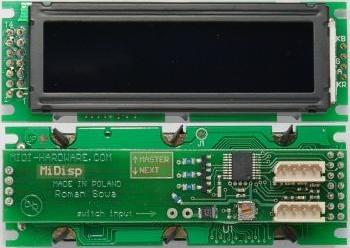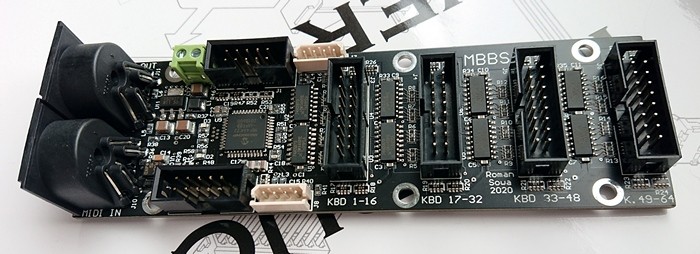I completely agree and funnily enough have suggested similar to Niclas at Modartt.
I'm an English Church organist and have worked with digital and traditional pipe organs from different churches and cathedrals in Wales and England. I miss the church life at the moment more than folk would know, COVID19 means I have to stay in isolation until after my 2nd jab as I'm also a carer for mum. as well as being disabled (blind) myself.
I would think that the best way of this is if Modartt produced a build of organteq as a linux distribution OS, why not call it OrganTeq OS, have it configured as a minimal specification OS to run organteq headless but allow a user to connect a display, keyboard and mouse to configure and register / update software as and when.
I am in complete agreement regarding competition against Hauptwerk, as a blind organist, I'm sickened by Milan Digital Audio's attitude to multiple requests and consultations over accessibility interface inclusions to support organists with sight impairment or sight loss, for all this to be ignored. I am proud to be a Modartt customer and user of such fine software.
There are discussions in place where enhancements and support for screen readers to at some point be added, I can't confirm this at all, only from a discussion by email.
In order to make Organteq become more flexible to midi consoles and custom build consoles, there needs to be a few fixes and inclusions to make automation of MIDI parameters, etc workable. These include the following:
1: Implementation of the "SET" button (SET being save piston to memory). Most recent consoles have this button included to write settings such as general and divisional pistons for instant recall, so this is an important requirement when making a console MIDI supported and Organteq based.
2: Expand upon the expression controller options. Currently Organteq provides Crescendo and a single swell expression, which can be mapped. Ideally we should have the option to support multiple expression pedals... Example: Console with 3 manuals featuring Crescendo, swell and Choir expression controllers, presently, MIDI assignments only permit the Crescendo and single expression pedal input to use Swell, but Swell can be mapped to any of the manuals and layer to the expression pedal, sometimes a creative solution, but not fully practical.
3: A better method of working with the sequencer system. A console by it's traditional spec for a hardware digital console relies on memory groups and not "presets". How a digital console behaves, you have a sequence navigator, so you can go to a memory bank, say bank 1, in this memory bank, you have the ability to store a number of general pistons and divisional pistons per memory, merory 2 can do the same, so you would navigate just by two sets of parameters, memory bank itself and from that you can use divisional and general pistons.
4: Organteq as software needs to expand in the direction of it's UI by focusing not just on a set of general pistons, but also divisional pistons. Organteq is not only great as an instrument within the home or studio, but is also an istrument with expansion to it, a professional solution where this could be used in Churches / houses of worship. It is with this, we must think about functionality of interfacing with installed consoles and how to interface the software directly via midi with consoles with a more effective midi learn system / mapping system. Having access to divisional pistons is necessary in organ playing especially for recitals, Musical Liturgy in houses of worship, etc, I use divisionals on the console at my church and have a file saved with my particular general and divisionals to recall.
These major improvements would then mean that Organteq could fully be used in any console build / custom spec installation.
There are other concepts which we should think of when expanding organteq and something we should talk about and encourage our developers here to be involved in, because our developers behind organteq and pianoteq are the reason we own these amazing pieces of software and use them every day, so we should support them, encourage them and influence the evolution of this amazing software.
Just think back to when Organteq was just an alpha stage single manual trial, Initially I thought... "OK what's going on here, is that it?" nope, just proof of concept, we're now 1.6.2 of organteq within a year or so, Massive steps forward and exciting potential to really open up organteq.
I'm more than up for showing Milan Digital Audio and Hauptwerk who's boss, why? not only is organteq cheaper, less processor intensive, doesn't require expensive compute systems and interfaces, has linux support, so could be embedded into an OS distro and go headless, you're not paying for 3rd party libraries, iLok dongles, etc, you're not downloading tons of gigs of data to a vulnerable storage environment, YOU'RE NOT USING JAVA!, but think of this, with Modartt, you have developers, sales and other staff who are passionate about the products, care about us as customers and what we need, what we want to achieve and how we achieve it. The facebook page for Modartt says it all, the website again and the scope of development of the products we use today. Modart has this right, 100% right. and we should encourage our devs and staff at Modartt to expand upon a unique software experience!
Hauptwerk isn't just the only environment on the market, Organteq is now a threat and with expansion, can be an extreme threat against Hauptwerk, There is another developer... Organnery - https://organnery.com in conjunction with Hauptwerk Hardware - https://www.hauptwerkhardware.com who are developing solutions to recycle and upgrade older consoles where systems are failing or voices just sound poo to say the least, with a new system called Aeolus, a linux designed system which uses additive synthesis and does sound good, It's being installed in a number of consoles here in the UK and the companies teaming up are producing a rather exciting headless system supported by highly skilled organists, electronics engineers, voicing specialists, etc, to make something unique.
My organ console build is with this company, we're talking about a number of technologies and my console build will support both Organteq on the mac but also a dedicated linux machine with Aeolus running.
All I'll say is this. Time to bring the big guns out, Organteq is now a threat to Hauptwerk and time to celebrate a unique instrument!
lew
Blind Pianist, organist, composer / producer for classical and synthetic orchestral works, Accessibility solutions developer and consulting specialist. Spreading a light in the darkness each day



